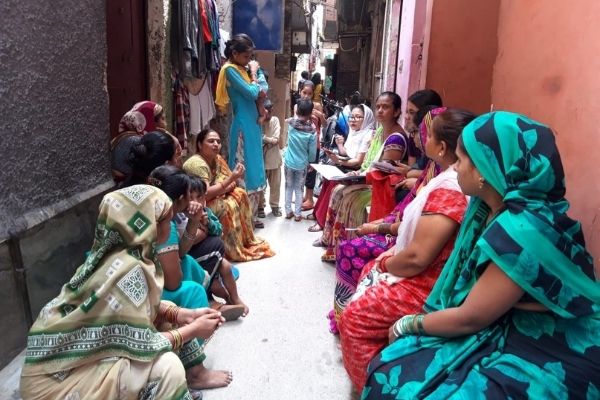
Families living in lane number 200 of Jahangirpuri’s B Block had always stepped inside their homes with muddy shoes. Dirty water overflowing from clogged drains along the lane would meander down the lane and then make its way inside the homes of those living on the ground floor. Over the past decades, the municipal body had relaid the road, causing it to be at a higher level than the surrounding houses, most of which were much older constructions. With the onset of SEWA’s land rights programme in Jahangirpuri in late 2019, the local community leaders i.e. agevans were trained to identify issues related to urban infrastructure service provisioning and land tenure. The community, through an interactive process, identified some key infrastructural issues within the block, all reflecting poor infrastructure delivery. Once these issues were identified, the agevans conducted an awareness drive in the settlement with the objective of educating (and in turn, mobilising) the female residents of their land entitlements and the corresponding service delivery agencies, including basic understanding of urban governance.
